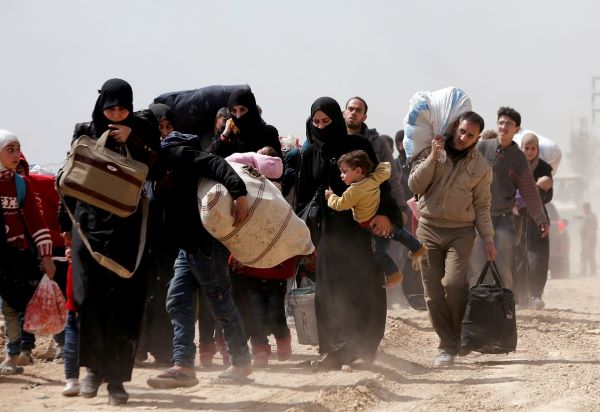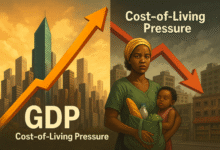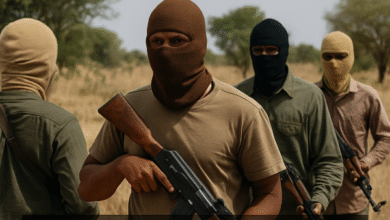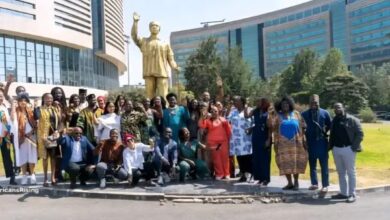Conflicts: 305m people need life-saving help in 2025 – UN
“In DRC, as with all these conflicts, we are ready to do more, it’s our mission to do more,”
 A top UN official, Tom Fletcher, has said that multiple unending conflicts, climate change, and a glaring disregard for long-established international humanitarian law are set to leave a staggering 305 million people in need of lifesaving assistance in 2025.
A top UN official, Tom Fletcher, has said that multiple unending conflicts, climate change, and a glaring disregard for long-established international humanitarian law are set to leave a staggering 305 million people in need of lifesaving assistance in 2025.
Fletcher, UN Emergency Relief Coordinator and head of the UN aid coordination office, OCHA, said this in a statement on Wednesday.
“The world is on fire…We are dealing with a polycrisis right now globally and it is the most vulnerable people in the world who are paying the price.
Adesina lists opportunities, paths to Africa’s transformation
We are dealing with the impact of conflicts – multiple conflicts – and crises of longer duration and more intense ferocity,” Fletcher said,
He said in an appeal for 47.4 billion dollars to provide life-saving aid in more than 30 countries and nine refugee-hosting regions.
Dire as OCHA’s new humanitarian assessment is on behalf of more than 1,500 humanitarian partners, it is expected that of the 305 million people in need of life-saving help, only 190 million will be reached.
A lack of funding is just one of the reasons why, in countries where populations have endured decades of violence and instability, such as the Democratic Republic of the Congo (DRC).
“In DRC, as with all these conflicts, we are ready to do more, it’s our mission to do more,” Fletcher said.
“My people are desperate to get out there and deliver because they are on the frontline. They can see what is needed but we need these resources.
“That’s our call to action and we also need the world to do more; those with power to do more, to challenge this era of impunity and to challenge this era of indifference,” he added.
As the UN’s newly appointed top aid official, Fletcher pledged to visit the capitals of the world “to bash down doors” of government in search of new partnerships and solidarity for the world’s most vulnerable people.
“I’ve got to find ways to reframe this argument in a way that will resonate with the public at large,” he added.
Citing his past roles as a UK ambassador with experience in conflict and peace-building, from Kenya to Lebanon and Northern Ireland, the new OCHA chief stressed the need to ensure that aid continues to flow to where it’s needed most.
“I have a clear mission around humanitarian delivery,” he said, before paying tribute to the “extraordinary entrepreneurial humanitarian diplomacy” of his predecessor Martin Griffiths, who stepped down in June for health reasons.
Asked about the changing geopolitical landscape in a bumper year of hugely significant national and presidential elections, Fletcher insisted that “it’s not just about America…we’re facing the election of several government officials who will be more questioning of what the United Nations does…
“But I don’t believe that we can’t make that case to them; I don’t believe that there isn’t compassion in these governments which are getting elected.”
In comments to journalists at the unveiling of the Global Humanitarian Overview 2025, Fletcher confirmed that communities continue to be confronted with multiple crises.
“It’s not just the fact of so many conflicts at the same time, it’s the duration of those conflicts; the average length is 10 years,” he said.
“We’re not closing off conflicts before the next ones are starting because those conflicts are so ferocious and the impact on civilians is so dramatic.
“I mentioned Gaza, Sudan, and Ukraine as examples of that, with this disregard of international law and in every case, obstruction of our work.”











